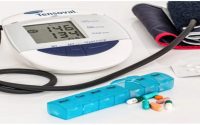Health Challenges Faced By an Aging HIV Population
Worldwide the population of people suffering from HIV and over the age of 50 is estimated to be around four million, and the proportion is increasing every day. Even though the young remain more at risk, increasing the disease is being diagnosed in those who are above the age of 50. It may be surprising to note that most of the health challenges being faced by the HIV population have more to do with age rather than HIV, and more than two-thirds of mortality in people with HIV is due to reasons other than HIV.
Growing Old with HIV
Advancement in drug therapy has meant that the immune systems of people infected with HIV are healthier than before with fewer side effects and medicines. However, despite this, there are a number of ways in which growing old with HIV is different from that of the non-infected persons. It is not unusual to see HIV patients suffering from “accelerated aging”, which means that they are afflicted with many health problems earlier than the general population. Though scientists are not sure why this happens, it is generally felt that it is due to the decreased ability of the immune system to fight threats. Moreover, a constantly activated immune system causes inflammation, which can lead to multiple afflictions like cancer and cardiac disease. Even medication toxicity, though it has decreased remarkably, causes long-term effects that are yet to be understood fully.
Common Health Challenges Faced By Older HIV Patients
Life expectancy: Women in the general population averagely live four to five years more than men; however, it has been found that HIV-affected women do not enjoy this advantage.
Co-morbidities: This refers to the additional medical conditions that people suffering from one disease tend to develop. In the case of HIV-positive people, it has been observed that they are inclined to suffer from diseases like diabetes, anemia, liver disease, high blood pressure, etc. to a greater extent than people who are HIV free.
Heart disease: With age, the risk of cardiac disease and brain strokes goes up substantially in HIV-positive persons. This can be especially serious in menopausal women because they can die very suddenly without ever having displayed any symptoms. One of the reasons suggested for explaining the propensity of cardiac disease in HIV-positive people is that the persistently activated immune system, as well as, inflammation leads to plaque development in the blood vessels.
Cancer: It has been proven that HIV increases the chance of the afflicted developing certain cancers that are related to AIDS. Recent research has shown that this may now include non-HIV related cancers like cancers of the anus, liver, lung as well as Hodgkin’s lymphoma. The accuracy of tests for these cancer types has increased a lot with the use of mybiosource antibodies that are trusted by scientists and pathologists worldwide.
Anemia: Even though the threat posed by anemia has decreased substantially in recent times, it is seen that around a third of all HIV afflicted women still experience anemia, which negatively affects life expectancy due to a variety of reasons including less muscle strength and tendency to falls.
Bone disease: HIV positive or not, the bones get weaker with advancing age, especially in women who have reached menopause. The onset of osteoporosis leads to weakened bones that can easily break due to a fall or an injury. It has been observed that people with HIV have a greater tendency to develop osteoporosis.
Conclusion
Those who are aging should pay close attention to their health, and especially those suffering from HIV should get themselves checked on a regular basis for the onset of co-morbidities.


